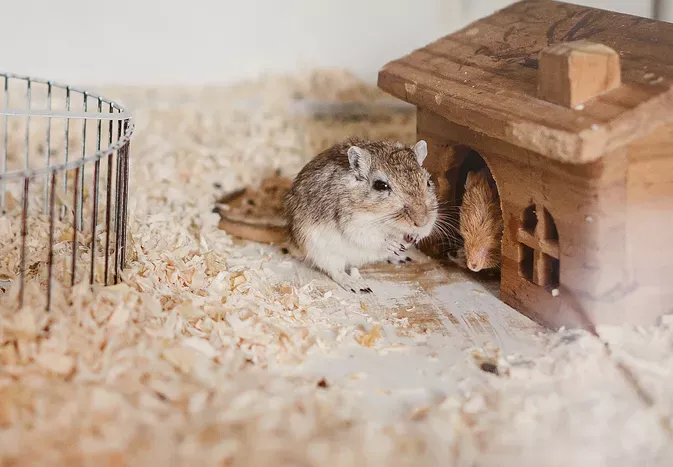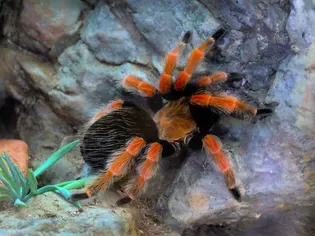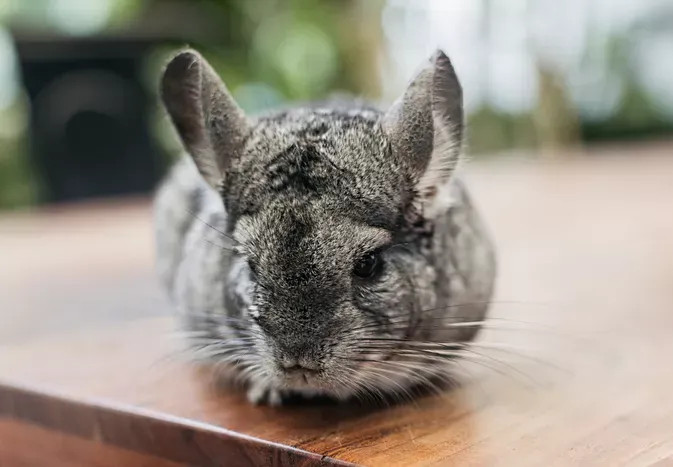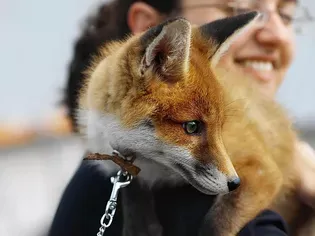What to Know About Caring for Your Small Pet in Cold Weather
Updated on 05/27/24

Stay Cozy: Essential Winter Care for Your Petite Companions
As the days grow shorter and the air turns crisp, it's crucial to ensure the well-being of our furry friends who call small spaces home. Cold weather poses unique challenges for these tiny creatures, making it essential to heed expert advice and provide them with the warmth, comfort, and care they deserve.
Understanding the Risks
Small pets, such as hamsters, gerbils, guinea pigs, and rabbits, are particularly susceptible to cold-related ailments due to their small size, limited mobility, and rapid heat loss.
* Hypothermia: Prolonged exposure to cold temperatures can lead to a drop in body temperature, causing lethargy, tremors, and even death.
* Respiratory infections: Cold weather weakens immune systems, making pets more prone to respiratory infections like pneumonia and bronchitis.
* Frostbite: Exposed ears, paws, and tails can develop frostbite, causing tissue damage and pain.
Creating a Warm and Safe Environment
* Insulate their home: Line cages or hutches with cozy materials like fleece, straw, or shredded paper to trap heat. Avoid using cotton, as it absorbs moisture and can become damp.
* Provide extra bedding: Offer your pet plenty of clean bedding to burrow into and create a warm nest.
* Keep them away from drafts: Position cages in sheltered areas where they won't be exposed to cold air currents.
* Use heating pads: Place a pet-safe heating pad under half of their enclosure, allowing them to choose a warmer or cooler spot as needed.
Nutritional Considerations
* Increase their food supply: Small pets need extra calories in winter to maintain their body temperature. Consider providing additional pellets, hay, vegetables, and fruits.
* Offer plenty of fluids: Cold air can dehydrate pets, so ensure they have access to fresh water at all times. Provide warm water if possible.
* Avoid feeding cold foods: Refrain from giving your pet cold treats or food that has been refrigerated.
Health Monitoring and Grooming
* Monitor your pet's condition: Pay attention to any changes in behavior, appetite, or appearance. Seek veterinary attention if you notice any unusual symptoms.
* Brush regularly: Regular brushing removes loose hair and helps distribute natural oils that insulate the skin.
* Trim nails: Long nails can impede mobility and make it difficult for your pet to stay warm. Trim their nails as needed.
Special Considerations for Different Species
* Hamsters: Hamsters need a well-insulated cage with plenty of bedding and a small hideout for warmth.
* Gerbils: Gerbils are social animals and should be kept in pairs or groups. Provide them with a large enclosure with ample bedding and hiding places.
* Guinea pigs: Guinea pigs require a spacious cage with a hideout, lots of hay, and fresh vegetables daily. Ensure they have access to a heating pad or warm water bottle.
* Rabbits: Rabbits should be kept in a large enclosure with hay, fresh vegetables, and a hutch or shelter for warmth. Provide them with a heating pad if necessary.
Precautions for Outdoor Pets
If your small pet lives outdoors, additional precautions are required:
* Provide a well-insulated shelter: The shelter should be weatherproof, draft-free, and large enough for your pet to move around comfortably.
* Line the shelter with cozy materials: Cover the floor with thick bedding like straw, hay, or fleece.
* Offer additional heat sources: Place a heating pad in the shelter, but ensure your pet can move away from it if they get too warm.
* Monitor your pet frequently: Check on your pet regularly to ensure they are warm and well-fed. Seek veterinary attention if you notice any signs of distress.
Remember, these small creatures rely on us for their survival. By providing them with the proper care during cold weather, we can ensure their comfort, health, and well-being. Embrace the challenge of winter as an opportunity to shower your furry friends with extra love and protection.
Explore More Pets

Exotic Pet Species
Should You Keep a Chimpanzee as a Pet?

Exotic Pet Species
Should You Keep a Raccoon as a Pet?

Exotic Pet Species
How to Care for a Pet Mexican Red-Knee Tarantula

Exotic Pet Species
12 Best Exotic Pets for Apartment Living

Exotic Pet Species
Best Foxes to Keep as Pets

Exotic Pet Species
Should You Keep a Northern Flying Squirrel as a Pet?

Exotic Pet Species
Should You Keep Stick Insect as a Pet?

Exotic Pet Species
Should You Keep a Big Cat as a Pet?
